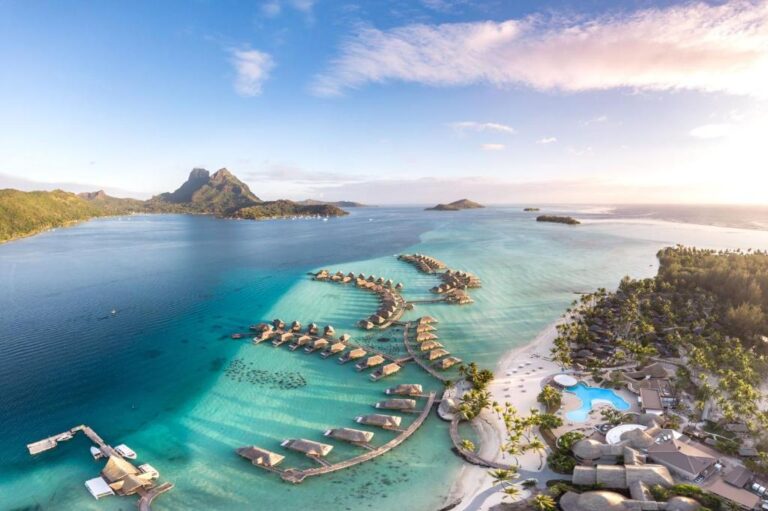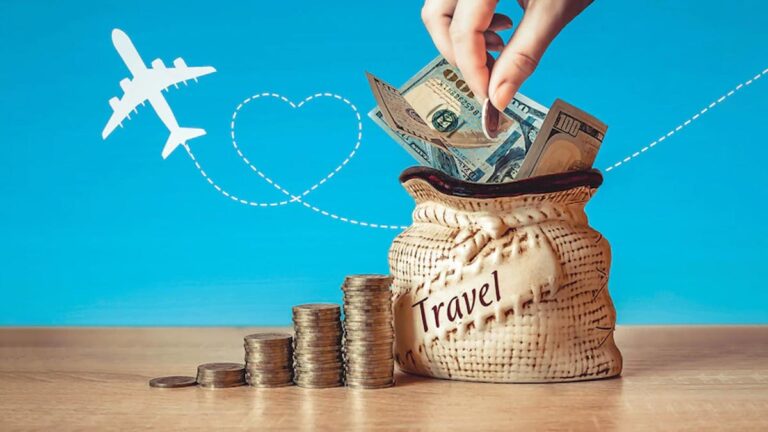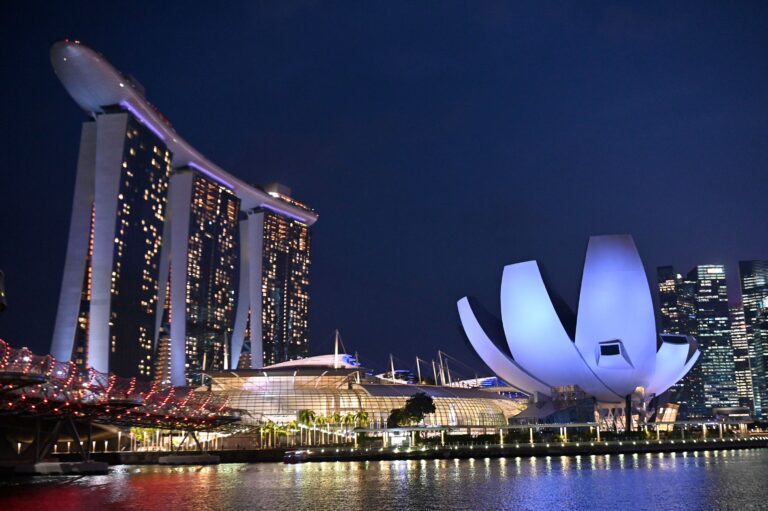What Are the Top 10 African Countries by Minimum Wage?
As of today, the African continent exhibits notable variations in minimum wage levels, reflecting diverse economic conditions and labor policies. Seychelles leads with the highest minimum wage, ranging between $430 and $465 monthly, followed by Libya, Morocco, and others.
These wages directly influence local living standards, tourism costs, and traveler experiences. Below, I dive into each country’s wage range, what influences these wages, and how visitors can maximize their stay economically and safely.
Top 10 African Countries with the Highest Minimum Wage
Seychelles – $430 to $465 per month
Seychelles tops the list with the continent’s highest minimum wage, supported by a robust tourism-dependent economy and fisheries sector. With an estimated GDP per capita exceeding $21,000 and low unemployment, the higher wage reflects relative affluence. As a traveler, expect slightly higher costs but unmatched island beauty, safe beaches, and high-quality services. Accommodation ranges widely—from luxury resorts to local guesthouses, catering to diverse budgets.
Libya – $320 per month
Libya’s wage level reflects its fluctuating political and economic environment. Though less frequented by tourists currently, it offers fascinating historical sites and Mediterranean coastline. Safety is a major concern, so travelers should remain updated via official advisories. Budget travelers should plan with caution, prioritizing secure accommodations and local guides.
Morocco – $280 to $360 per month
Morocco combines rich cultural heritage with relatively higher wages compared to many African peers. The demand for skilled labor in cities such as Casablanca and Marrakech influences wage policies. Visitors often find affordable local cuisine, bustling markets, and luxury accommodations. I’ve personally enjoyed exploring the Medina in Fez and recommend budgeting for guided tours and traditional dining experiences.
Gabon – $255 to $270 per month
Gabon’s minimum wage reflects its oil-driven economy and relatively small population. Verdant rainforests and unique wildlife make Gabon a growing hotspot for ecotourism. Travelers should plan for higher costs in remote areas, and pack essentials as amenities can be limited outside Libreville. The local culture is welcoming, with opportunities for authentic experiences in forest villages.
South Africa – $240 to $273 per month
South Africa’s diverse economy supports a minimum wage that reflects urban industrial sectors. Visitors enjoy a vast range of attractions, from Cape Town’s Table Mountain to the Kruger National Park safari. Costs vary widely; while city life can be pricey, backpacker and budget options abound. Safety is variable—stay aware of your surroundings and heed local advice, especially in dense urban areas.
Mauritius – $240 to $377 per month
Mauritius’ minimum wage corresponds with its position as a growing tourism and finance hub. The island offers white sandy beaches, water sports, and vibrant nightlife. Its diversity in accommodations means travelers can opt for affordable stays or luxury resorts. Mauritius is known for its friendly locals and relative safety.
Equatorial Guinea – $200 to $211 per month
Equatorial Guinea’s oil wealth contrasts with its modest wages. It remains off the popular tourist radar but holds intriguing colonial architecture and pristine beaches. Travel here requires careful preparation regarding permits and safety, plus local contacts. Expect limited tourist infrastructure but rewarding cultural immersion.
Kenya – $130 to $178 per month
Kenya’s minimum wage reflects its developing economy with strong agricultural and tourism sectors. Home to world-famous safaris in Maasai Mara, travelers often combine mid-range budgeting with adventure travel. Urban centers like Nairobi offer modern amenities. I recommend investing in reputable tours and staying vigilant with travel safety norms.
Algeria – $140 to $154 per month
Algeria’s minimum wage is modest in comparison, reflecting its large population and oil-reliant economy. The Sahara Desert and Mediterranean coast attract niche travelers. Safety and political context demand cautious planning and local advice. Budget travelers should allow for occasional logistical challenges but can experience rich history and landscapes.
Mozambique – $110 to $115 per month
Mozambique has the continent’s lowest minimum wage in this top list, tied with ongoing challenges in development. Its idyllic coastline and islands offer paradise for budget-conscious travelers willing to adapt. Infrastructure varies, so advanced planning is key. Despite hardships, visitors cite the warmth of the people and natural beauty as unrivaled highlights.
Understanding What Influences Minimum Wage Levels in African Countries
Minimum wage levels in African countries are influenced by a tapestry of economic, social, and political factors. Economies with higher GDP per capita, diversified industries, and lower unemployment tend to set higher minimum wages. Government labor policies, inflation rates, the strength of labor unions, and cost of living all play critical roles.
For instance, island economies like Seychelles and Mauritius leverage tourism wealth to sustain higher wages. Conversely, countries facing political instability or limited industrialization, such as Mozambique or Libya, have correspondingly lower minimum wages. Wage policies also reflect efforts to balance living standards with employment rates, avoiding negative impacts on small businesses or inflation.
A Local’s Travel Guide: Tips, Must-See Attractions, Safety, and Budgeting
Seychelles – The Island Paradise
Seychelles is more than just high wages; it’s a traveler’s dream of pristine beaches and vibrant marine life. I personally recommend visiting Anse Lazio and Morne Seychellois National Park for unforgettable views. Staying in locally owned guesthouses offers a great balance between comfort and cost. For safety, Seychelles ranks highly—just watch out for sun exposure and stay hydrated. Local cuisine is flavorful but expect prices to reflect the high wage environment, so budgeting $70–$100/day is practical.
Libya – Historic Treasures and Caution
Traveling in Libya demands preparation but offers rewarding experiences of Roman ruins like Leptis Magna. Use official travel advisories and connect with local guides for secure exploration. Accommodation is limited for tourists; opt for recommended hotels in Tripoli. Costs are moderate but fluctuate due to political conditions, requiring flexible budgeting.
Morocco – Culture and Adventure
From the bustling souks of Marrakech to the Atlas Mountains, Morocco delivers rich culture and adventure. I advise allocating roughly $50/day to cover food, transport, and modest lodging. Public transport is efficient, but hiring a guide for desert or mountain tours enhances safety and immersion. Always negotiate prices and remain aware of your surroundings in crowded markets.
Gabon – Nature’s Hidden Gem
Gabon’s luscious rainforests and wildlife reserves like Loango National Park beckon eco-tourists. Tourist infrastructure is developing, so hiring a local guide is essential. Costs are higher in remote zones, where bringing supplies is wise. Embrace community tourism for authentic engagement with locals.
South Africa – Diversity in Experiences
South Africa offers everything from urban excitement to wildlife safaris. I recommend balancing visits between cities like Johannesburg and Cape Town with national park adventures. While the minimum wage is moderate, tourists can find budget-friendly hostels and car rental deals. Safety protocols matter especially in urban centers—avoid isolated areas after dark.
Mauritius – Tropical Luxury and Local Traditions
The blend of beach resorts and cultural richness in Mauritius is striking. Food lovers shouldn’t miss local markets in Port Louis. Prices can vary widely; I found that mix-and-match accommodations suit a broad spectrum of travelers. Public transport and taxis are reliable, but renting a scooter is a fun way to explore.
Equatorial Guinea – Off-the-Beaten-Path Exploration
For adventurous travelers, Equatorial Guinea offers colonial architecture and natural splendor on Bioko Island. Visa and permit processes require careful attention. Tourist amenities are basic, so being self-sufficient and patient pays off. Local communities warmly welcome respectful visitors.
Kenya – Safari and Urban Life
Kenya is synonymous with safaris and diverse landscapes from Nairobi’s skyscrapers to Maasai Mara plains. Guided tours are a must for safety and wildlife experience. Day-to-day expenses are manageable with good planning. I advise using local SIM cards for easy navigation and communication.
Algeria – Rich History Meets Desert Wilderness
Algeria’s Sahara expanse offers unparalleled desert adventures. Cultural gems in Algiers highlight a blend of Arab and French influences. Travel around major cities is straightforward, though intercity trips require planning. Be mindful of official travel guidance for safety in certain regions.
Mozambique – Coastal Beauty on a Budget
Mozambique’s idyllic beaches like Tofo attract budget travelers ready for an off-the-grid vibe. Infrastructure varies, so plan transport and accommodations ahead. Local seafood markets provide delicious affordable meals. Safety is generally good, but rural areas benefit from guidance.
Interactive Map: Locate Seychelles for Your Trip Planning
Pros and Cons of Traveling in High Minimum Wage African Countries
Pros
- Higher minimum wages often correlate with better infrastructure and services.
- Improved safety standards and healthcare access for travelers.
- Opportunity to experience stable economies with vibrant cultures.
- Quality hospitality sectors with diverse accommodation choices.
Cons
- Travel costs (lodging, food, transport) tend to be higher.
- Tourist hotspots may feel more commercialized.
- Some countries with higher wages may limit visitor access or have complex entry requirements.
- Variable safety conditions require vigilant travel planning, especially outside urban centers.
Must-Know Travel Tips for Exploring These Countries
- Always check official government travel advisories and register with your embassy when visiting politically sensitive areas.
- Use local SIM cards for affordable data and connectivity.
- Respect local customs and languages for richer cultural immersion.
- Carry emergency contact details: local police, embassy, medical centers, e.g., Seychelles Emergency: +248 43420, South Africa Police: 10111.
- Budget with a buffer for unexpected expenses due to currency fluctuations or inflation.
FAQ: Your Questions about African Minimum Wages and Travel Answered
What factors most influence minimum wage levels in African countries?
Minimum wages are shaped by each country’s economic development, inflation, industry diversification, government policies, and labor market conditions. Countries with stronger economies and higher GDP per capita tend to have higher wages, while political stability and labor unions also contribute significantly.
Are these minimum wages enough for a decent living standard?
The adequacy of minimum wages varies widely with local cost of living. In countries like Seychelles and Mauritius, wages more closely align with living costs, enabling basic needs to be met. In others like Mozambique, wages are lower and may struggle to cover essentials without additional income sources.
How should tourists budget when visiting these countries?
Tourists should budget according to the local wage and cost of living context. For higher minimum wage countries, a daily budget of $70–$100 is typical, covering mid-range accommodations, food, and transportation. For lower wage nations, daily budgets under $50 are possible, especially if staying in local guesthouses and eating at markets.
What safety precautions should travelers take?
Stay updated on local safety conditions, avoid risky areas especially at night, use reputable transportation and guides, and keep emergency contacts handy. Respect local laws and customs, and purchase travel insurance that covers local medical care and evacuation.




